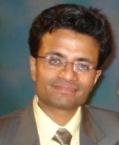Summing up the policy, there have been no changes in interest rates. However, the concerns over inflation have been mentioned in the statement.
The Statement is divided into 2 parts:
- Annual Statement on Monetary Policy- which is further subdivided into 3 parts:
i) Summary of the Macroeconomic and Monetary developments I mentioned in previous blog entry . ( So people who cannot read the huge report, can read the summary here ..Summary 30 pages Vs Report 99 pages)
ii) Stance of Monetary Policy for 2007-08: It is the most important part of the Statement as from this one gauges the stance (whether hawkish or dovish) , RBI is taking.
iii) Monetary Measures: Finally the measures taken, the part which matters the most for markets. - Statement on Developmental and Regulatory Policies for the year 2007-08: This statement lays down policies for strengthening the Indian Financial System.
On 1(i) and 1 (ii) I would write later, let me quickly go through the developments in 2 (my comments wherever reqd are in italics and in blue).
State Development Loans (State Govt. Bonds)
- Introduction of an indicative calendar for State Development Loans ins being worked out
- Non-competitive bidding in SDL auctions to be issued
- SDLs to also be reissued ( rather than issuing new SDLs evertytime)
G-Secs (Central Govt Bonds)
- Floating Rate Bonds have so far failed in India. (See an example of how floating rate bonds are valued here). There is a proposal to use average cut-off yield on 182 day T-Bills instead of 364 day T-Bills. (The bond failed as the coupon was reset once in an year and in a rising interest rate scenario it was not worth buying the bond, the statement does not mention that reset would also be changed to twice a year. Let us wait for further press release)
Corp Bonds
- After many years of dilly dallying, RBI says it will consider inclusion of corporate bonds in the repo market. (I don't understand why does it take so much time to consider? The guidelines for this would be interesting as corporate bonds are now under SEBI's domain and G-Sec under RBI, corp bonds are traded/reported on BSE and NSE and G-Sec on NDS-OM system. How would the whole thing be managed would be interesting to see)
Derivatives
- Plans to start a trading platform for Interest rate swaps (a nice move to bring transparency in this market, as it is largely traded OTC (Over the Counter) over telephone , I was wondering how should an exchange be designed for these products? Something like OTCEI I would believe....)
- Overseas investment limit for corporates increased from 200% of their net worth to 300%
- Listed Indian companies are allowed to do portfolio investment in companies abroad. This limit has been increased from 25% of net worth to 35%.
- Mutual Funds on an aggregate basis are allowed to invest overseas and the ceiling is $3 bn. This has increased to $4 bn
- Individuals can now invest Us $ 100,000 in overseas markets from the $50,000 limit earlier
- Category-1 Dealers can offer Hedging solutions to domestic producers/users of following metals: aluminium, copper, zinc and nickel in international exchanges. Users of ATF are also allowed (It is welcome but why just 4 metals)
- Earlier corporates that used forward contracts to hedge currency risks could use them provided they are completed by delivery or rolled over on due date. From now, they can cancel the contract and rebook it. SMEs and individuals can also use forward contracts now.(Another good development; corporates can take a relook at the risk and hedge afresh)
I am a bit tired now. Would post more developments tomorrow.

